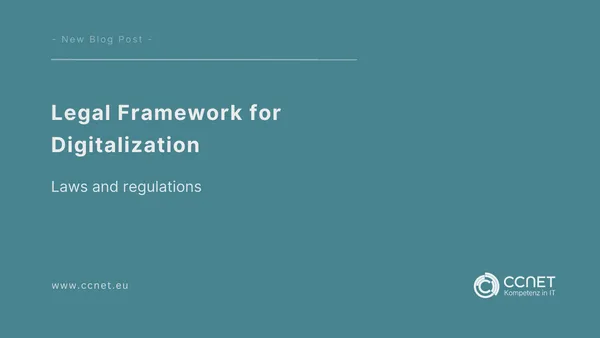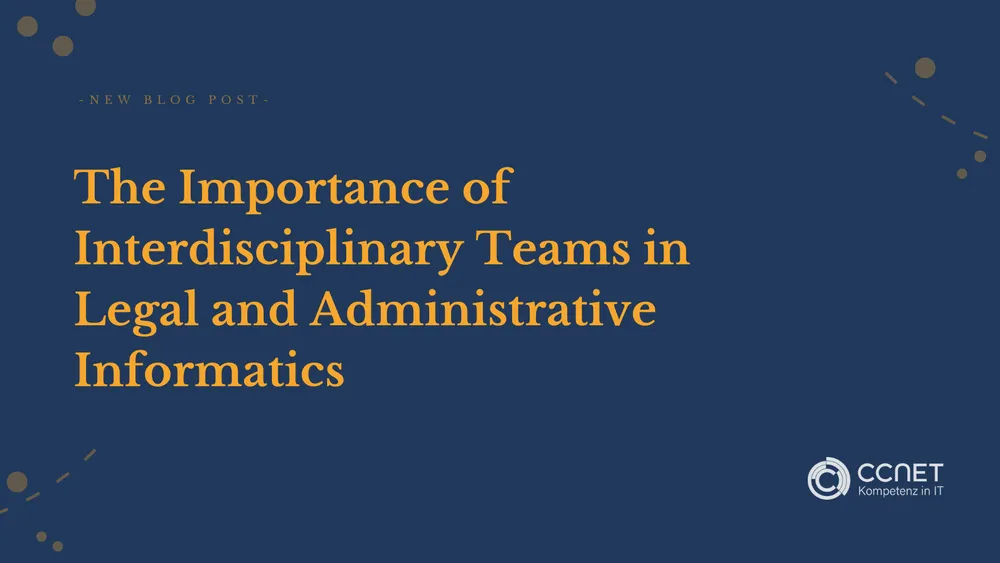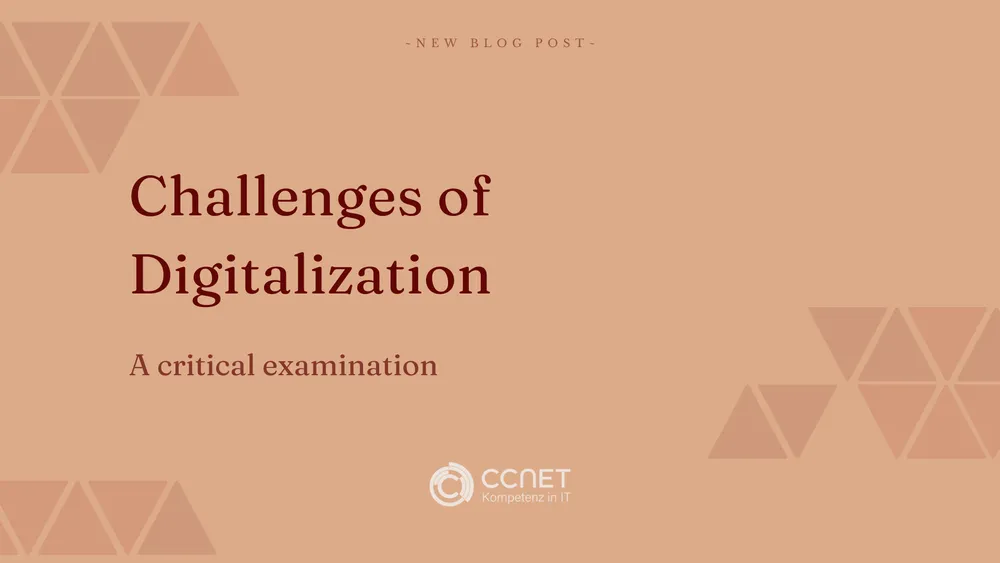
CCNet
Jul 3, 2024 • 3 min read

Legal Framework for Digitalization: Laws and Regulations
The digitalization is fundamentally transforming administration and the delivery of public services. This development requires a robust legal foundation to promote innovative technologies while also protecting citizen rights. This blog post provides a comprehensive explanation of the legal framework that governs digitalization in the EU and Germany, focusing particularly on the challenges and opportunities presented by these legal frameworks.
Further information can be found here: certification
Key Directives and Regulations
The legal framework for digitalization in the European Union is shaped by several directives and regulations. Some of the most significant ones include:
-
EU Services Directive: This directive aims to improve the free movement of services within the EU and facilitate electronic government processes. It lays the groundwork for seamless cross-border service provision and promotes digitalization in public administration.
-
eIDAS Regulation: It regulates electronic identification and trust services for electronic transactions in the European single market and is a key pillar of the EU's strategy to promote digitalization. This regulation creates a trusted environment for electronic transactions and fosters interoperability of digital solutions across borders.
-
General Data Protection Regulation (GDPR): This regulation is perhaps one of the most well-known legal instruments and governs data protection and the processing of personal data. It sets strict standards for privacy protection and gives citizens more control over their personal data, thereby strengthening trust in digital services while ensuring data protection.
National Implementation in Germany
In Germany, the implementation of these European directives is complemented by a variety of national laws and regulations. The E-Government Act, for example, promotes digital administration by simplifying access to public services through digital technologies. Additionally, there are further initiatives and measures at the regional and municipal levels aimed at advancing the digitalization of administration.
Legal Challenges and Development Steps
With the advancing digitalization, legal challenges arise, especially in the areas of data protection and cybersecurity. The need to ensure both security and privacy has led to specific requirements in the legal landscape:
-
Data Security: Given the increase in cybercrime, the EU has put forth a cybersecurity strategy and recently established a European Competence Centre in the field of cybersecurity.
-
Soft Law: Besides binding legal instruments, soft law, such as the declarations from Tallinn and Berlin, is increasingly used to respond flexibly to new challenges in digitalization. It has proven to be an effective tool for quickly adapting to changing needs and technologies, contributing to the adaptability of the legal framework.
Conclusion
The legal framework for digitalization is complex and encompasses a wide range of regulations at the EU and national levels. These laws and regulations are crucial for maximizing the benefits of digitalization while minimizing risks. They provide the necessary legal backing for a secure and efficient digital transformation of public services.
The ongoing adaptation of these legal frameworks will be crucial to keep pace with the rapid development of digital technologies and to promote both innovation and data protection. Continuous review and updating of these regulations are essential to ensure they meet current requirements and provide a suitable legal basis for evolving digital landscapes.
Which important EU directives and regulations govern digitisation in public administration?
Important EU directives and regulations governing digitalisation include the EU Services Directive, the eIDAS Regulation and the General Data Protection Regulation (GDPR). These regulations promote the free movement of services, electronic identification and data protection within the EU.
What does the eIDAS Regulation regulate?
The eIDAS Regulation regulates electronic identification and trust services for electronic transactions in the European single market. It promotes the interoperability of digital solutions and creates a trustworthy environment for electronic transactions.
What is the GDPR and how does it promote data protection in digitalisation?
The General Data Protection Regulation (GDPR) regulates the protection of personal data and sets high standards for the processing of this data. It gives citizens more control over their personal data and strengthens trust in digital services.
What are the challenges in the area of data security in digitalisation?
A key concern is protection against cybercrime. The EU has introduced a cybercrime strategy and created a European Cybersecurity Competence Centre to ensure data security in digital processes.
How is the digitisation of public administration being implemented in Germany?
In Germany, digitisation is promoted by the E-Government Act, which simplifies access to public services via digital technologies. There are also other initiatives at regional and local level that are driving digitisation forward.
What is "soft law" and what role does it play in digitalisation?
"Soft law" refers to non-binding legal acts, such as the Tallinn and Berlin declarations, which are used to respond flexibly to new digital challenges. They are a tool for responding quickly to changing needs and technologies.
What legal developments are needed to further promote digitalisation?
It is important that the legal framework is continuously adapted to keep pace with the rapid development of digital technologies. Regular review and updating of these regulations is necessary to promote both innovation and data protection.


